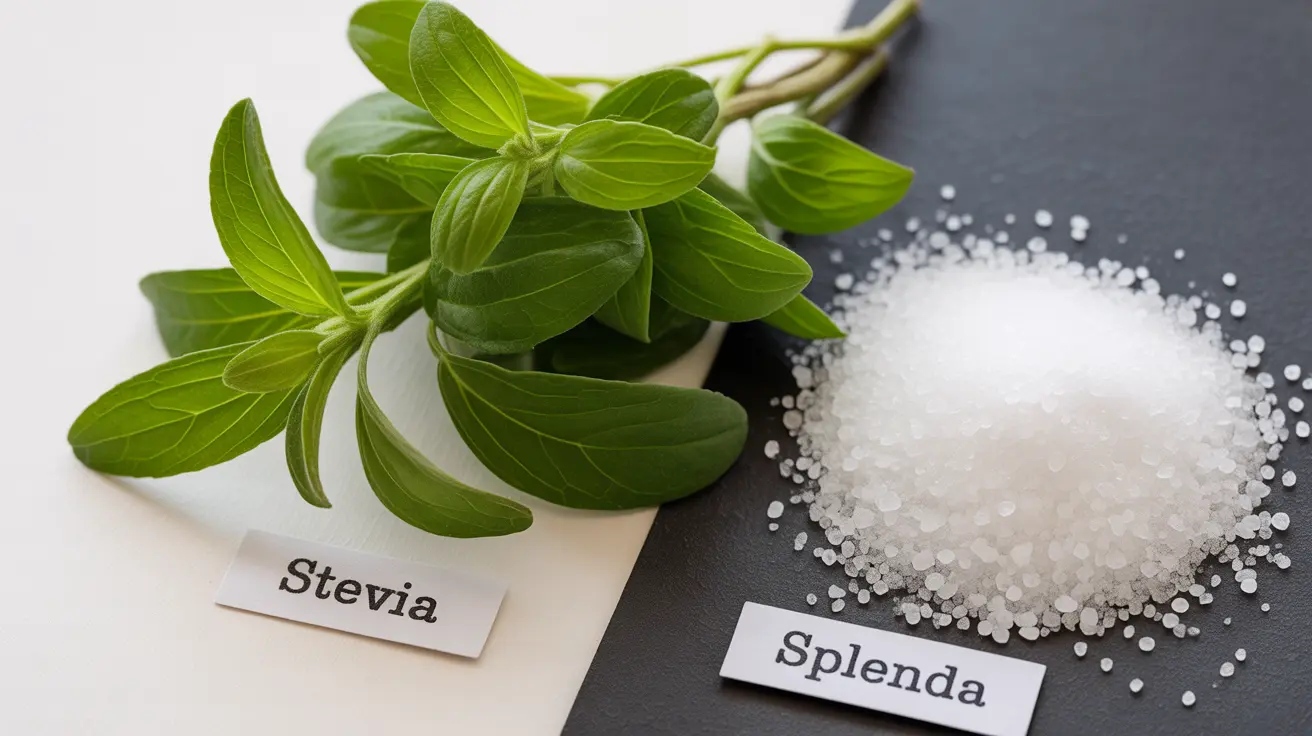As people become increasingly health-conscious and seek alternatives to sugar, the debate between stevia and Splenda has gained significant attention. Both sweeteners offer zero-calorie options for those looking to reduce their sugar intake, but they differ considerably in their origin, processing, and potential health effects. This comprehensive guide will help you understand the key differences between these popular sweeteners and make an informed choice for your dietary needs.
Understanding the Origins and Processing
Stevia is derived from the leaves of the Stevia rebaudiana plant, making it a natural sweetener that has been used for centuries. The sweet compounds, called steviol glycosides, are extracted and purified from the plant leaves. In contrast, Splenda (sucralose) is an artificial sweetener created through chemical modification of sucrose, where hydrogen-oxygen groups are replaced with chlorine atoms.
Sweetness and Taste Profile
Both sweeteners are significantly sweeter than regular sugar, but their taste profiles differ noticeably. Stevia is approximately 200-350 times sweeter than sugar and often has a slight licorice-like aftertaste that some people find noticeable. Splenda is about 600 times sweeter than sugar and is engineered to have a taste profile more similar to regular sugar, though some users report a slight artificial aftertaste.
Health Impact and Safety
Blood Sugar Management
Stevia has shown promising benefits for blood sugar control, as it doesn't affect blood glucose levels and may even help improve insulin sensitivity. Splenda, while not directly increasing blood sugar, has shown mixed results in some studies regarding its effects on insulin response and gut bacteria.
Digestive Health
Natural stevia extracts are generally well-tolerated by most people and may even support gut health. However, some people might experience mild digestive issues with certain stevia products that contain sugar alcohols as bulking agents. Splenda's effects on gut bacteria have been questioned in some research, with studies suggesting it might alter the gut microbiome composition.
Cooking and Baking Considerations
Both sweeteners can be used in cooking and baking, but they behave differently under heat. Stevia remains stable at high temperatures, making it suitable for baking, though recipes may need adjustment due to its intense sweetness and lack of bulk. Splenda is specifically formulated to be heat-stable and measures more similarly to sugar, making it easier to substitute in recipes without significant modifications.
Pregnancy and Safety Concerns
High-purity stevia extracts have been deemed safe for consumption during pregnancy by regulatory agencies. However, pregnant women should stick to approved stevia products and avoid crude stevia extracts. Splenda is also considered safe during pregnancy, though some healthcare providers recommend limiting artificial sweeteners in general during this time.
Frequently Asked Questions
- What are the differences between stevia and Splenda, and which one is considered healthier?
Stevia is a natural sweetener derived from plant leaves, while Splenda is artificially created from sugar. Stevia is generally considered healthier due to its natural origin and potential benefits for blood sugar control, though both are FDA-approved for use.
- How do stevia and Splenda compare in terms of their impact on blood sugar levels and diabetes management?
Stevia has no impact on blood sugar levels and may help improve insulin sensitivity. While Splenda doesn't directly raise blood sugar, some studies suggest it might affect insulin response. Both are considered suitable for diabetes management, but stevia may offer additional benefits.
- What are the potential side effects of consuming stevia versus Splenda, and how do they affect gut health?
Stevia is generally well-tolerated but may cause mild digestive issues in some people when combined with sugar alcohols. Splenda has been associated with potential changes in gut bacteria composition, though more research is needed to fully understand its long-term effects.
- Is stevia a better choice than Splenda for baking and cooking, considering their stability at high temperatures?
Both sweeteners are heat-stable, but Splenda may be easier to use in baking as it measures more similarly to sugar. Stevia requires recipe adjustments due to its intense sweetness and different bulk properties.
- Can stevia or Splenda be used as a natural sugar substitute during pregnancy, and are they safe for expectant mothers?
Both FDA-approved stevia products and Splenda are considered safe during pregnancy. However, it's recommended to use high-purity stevia products and moderate consumption of artificial sweeteners. Consult with healthcare providers for personalized advice.




